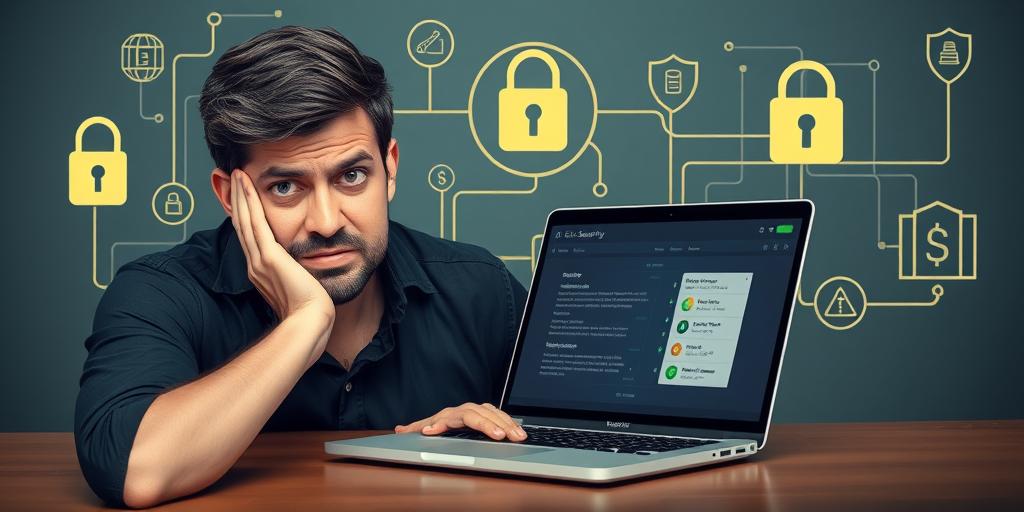Navigating the world of cryptocurrencies can be exciting, but it’s crucial to prioritize crypto security to safeguard your hard-earned assets. 2024 is shaping up to be a year of significant growth in the crypto space, and with it comes a growing need for robust security measures. In this guide, we’ll explore the best practices for securing your crypto wallet in 2024, covering everything from choosing the right wallet type to implementing advanced security measures.
Understanding Crypto Wallet Security
A crypto wallet is essentially a software program that allows you to manage your digital assets. It stores your private keys, which are unique codes that grant you access to your crypto holdings. Keeping your private keys safe is paramount to maintaining control of your assets.
Types of Crypto Wallets
There are several types of crypto wallets available, each with its own strengths and weaknesses.
1. Hot Wallets: These are online wallets that are accessible through a device like a computer or smartphone. They offer convenience but are generally less secure than offline wallets.
2. Cold Wallets: These are offline wallets that store your private keys on a physical device, such as a hardware wallet. Cold wallets are considered the most secure option as they are not connected to the internet.
Vulnerabilities and Threats
Crypto wallets are susceptible to various vulnerabilities and threats.
1. Phishing: This involves malicious actors disguising themselves as legitimate entities to trick users into revealing their private keys.
2. Malware: This includes software designed to steal your private keys or compromise your device.
3. Hacking: This involves unauthorized access to your wallet, often targeting exchanges and platforms where your crypto is stored.
Best Practices for Secure Crypto Wallet Management
Protecting your crypto wallet requires a multi-layered approach. Here are some essential best practices:
Choose a Secure Wallet Type
The type of wallet you choose has a significant impact on your security. If you’re holding significant amounts of crypto, a cold wallet is highly recommended. However, if you need frequent access to your assets, a hot wallet might be more suitable.
Strong Passwords and Seed Phrases
Use strong passwords and seed phrases for your wallet. A strong password is at least 12 characters long and includes a mix of uppercase and lowercase letters, numbers, and symbols. Your seed phrase is a series of words that act as a backup for your private key. Keep it safe and never share it with anyone.
Two-Factor Authentication (2FA)
Enable two-factor authentication (2FA) for your wallet and exchange accounts. 2FA adds an extra layer of security by requiring you to enter a unique code from your phone or email in addition to your password. This helps prevent unauthorized access even if your password is compromised.
Regular Security Updates
Always keep your wallet software up-to-date. Updates often include security patches that fix vulnerabilities. You can find updates for your wallet through the official app store or website.
Offline Storage (Cold Wallets)
For long-term storage or holding large amounts of crypto, consider using a cold wallet. Cold wallets are not connected to the internet, making them highly resistant to online threats.
Avoid Phishing and Scams
Be cautious of phishing attempts and scams. Never click on suspicious links or provide your private keys to anyone, even if they claim to be from a reputable company or exchange.
Additional Security Measures
Beyond the basic best practices, consider implementing these additional security measures:
Hardware Wallets
Hardware wallets are physical devices that store your private keys offline. They are considered the most secure type of crypto wallet, as they are physically protected from online threats.
Multi-Signature Wallets
Multi-signature wallets require multiple parties to approve transactions. This adds an extra layer of security, as a single person cannot move funds without authorization from others.
Security Audits
Consider having your wallet or exchange audited by a reputable security firm. This involves a thorough review of your security systems to identify and address potential vulnerabilities.
Staying Safe in the Crypto World
Crypto security is an ongoing process. Stay informed about the latest threats and vulnerabilities and adapt your security practices accordingly.
1. Importance of Proactive Security: Implement these best practices now, rather than waiting until you experience a security breach.
2. Staying Informed and Adapting to Evolving Threats: The crypto world is constantly evolving, and new security threats emerge regularly. Stay informed by following reputable security news sources and industry blogs.
By following these tips and staying vigilant, you can significantly reduce the risk of losing your crypto assets. Remember, your security is your responsibility, so take the necessary steps to protect your investments.




